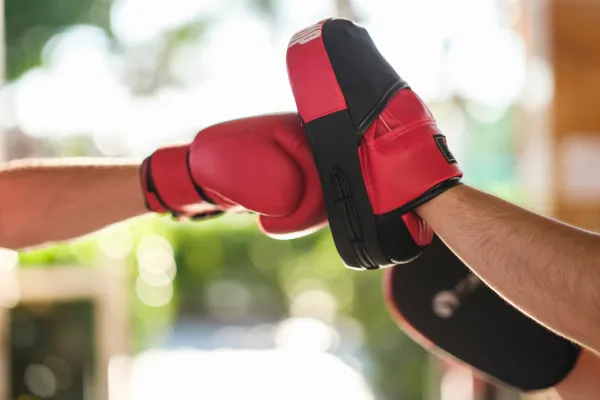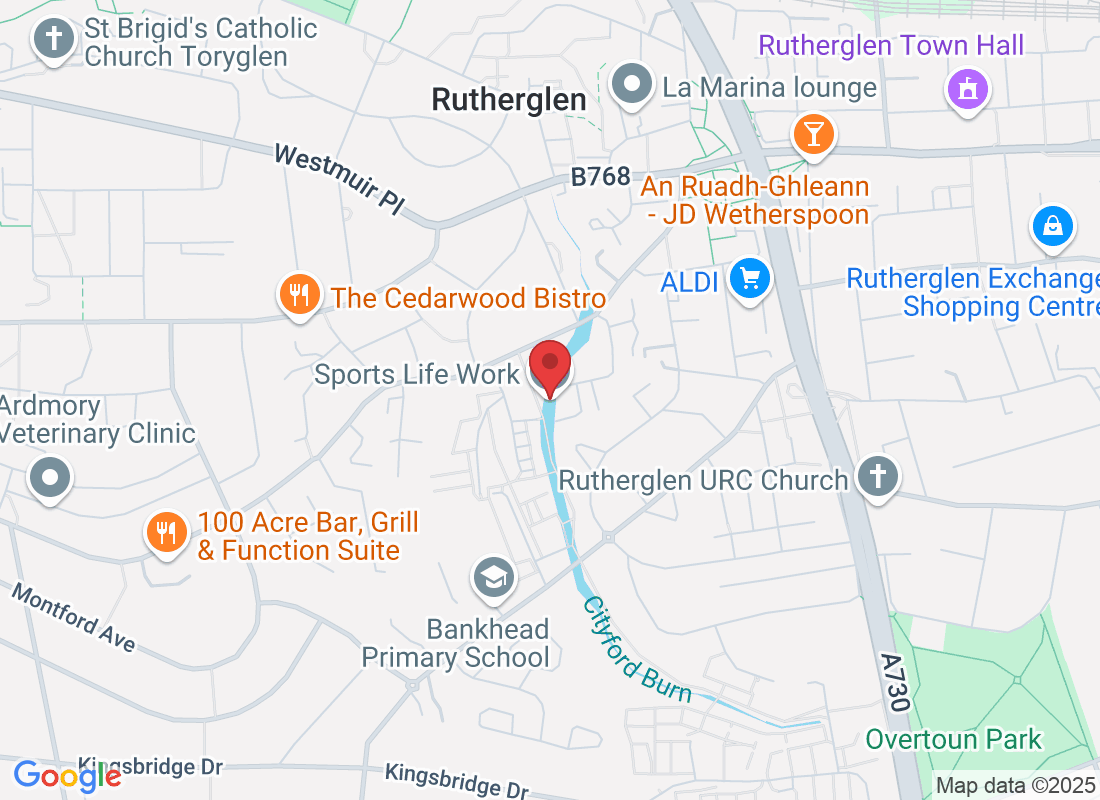Tips & Advice From Sports Life Work

Boxing, Running, or Gym? How Different Workouts Affect Your Joints
Every type of workout moves your body in different ways — and your joints feel it! Whether you love lacing up your trainers for a run, hitting the boxing pads, or lifting in the gym, each activity puts a unique load on your joints.
At Sports Life Work, we help active people across Rutherglen and Glasgow understand what their bodies need to keep moving well — no matter how they train. Knowing how different workouts affect your joints helps you train smarter, recover better, and avoid injuries that can sneak up on you.
What Joints Do During Your Workout
Think of your joints like the hinges and pulleys in a machine. They help your body move, absorb shock, and transfer power from one area to another.
When joints are well-supported by muscles and move in a healthy range, everything works beautifully. But when a joint gets stiff, overloaded, or moved the wrong way again and again — that’s when trouble starts.
Let’s break down the joint stress from some of the most popular types of workouts:
Boxing: Shoulders, Wrists, and Knees
Boxing is brilliant for cardio, coordination, and full-body power — but it’s not light on your joints.
Shoulders take the brunt of fast punches and overhead movements, especially if your posture is a bit hunched or your shoulder mobility is limited.
Wrists absorb impact with every jab and hook. Without proper technique or good wrist strength, they can easily get sore or inflamed.
Knees work hard with all that footwork and pivoting. Poor alignment or weak glutes can lead to tracking issues.
We often see boxers at our Glasgow Sports Therapy Specialist clinic for shoulder or knee niggles — but the good news is, with a few smart tweaks, boxing can be both powerful and joint-friendly.
Running: Ankles, Knees, and Hips
Running is fantastic for your heart, lungs, and headspace — but it’s also a repetitive, high-impact activity.
Ankles and feet take thousands of hits with every session. Lack of mobility or unstable ankles can lead to shin splints or plantar fasciitis.
Knees are a common hotspot for runners, especially if your hips aren’t doing their fair share of the work.
Hips help stabilise your entire stride. Weak glutes or tight hip flexors throw everything out of sync.
At our Injury Rehabilitation Glasgow clinic, we use gait assessments and mobility tests to pinpoint why pain is showing up — and build a plan to fix it fast.
Gym Work: Shoulders, Lower Back, and Knees
Whether you’re lifting weights, doing HIIT, or using machines, the gym is full of ways to get strong — and also full of ways to overdo it.
Shoulders are often overworked in pressing movements. Without proper scapular control, you can develop impingement or rotator cuff irritation.
Lower back pain is common when technique slips under fatigue, especially during squats, deadlifts, or kettlebell swings.
Knees get loaded in lunges and squats — which is fine when alignment and control are good, but risky if things aren’t moving right.
That’s why so many gym-goers come to our Fitness and Injury Rehab Rutherglen centre. We help them lift smarter, recover better, and train pain-free.
How to Protect Your Joints — No Matter How You Train
Here’s what we recommend for everyone, whatever your workout style:
✅ Warm up properly — Prep your joints and muscles for what’s coming. Think mobility and activation, not just cardio.
✅ Check your form — Quality of movement matters more than speed or weight. Video yourself or get a coach’s eye on your form.
✅ Strengthen your weak spots — Rehab exercises aren't just for after injury. They help you stay balanced and strong.
✅ Listen to your body — A little fatigue is fine. Sharp pain, lingering tightness, or clicks? Time to get it checked.
✅ Build in recovery — That includes rest days, stretching, and hands-on therapy like we offer at our Active Recovery Clinic in Glasgow.
Personalised Support for Every Type of Mover
Whatever your go-to workout is, we’re here to help you stay mobile, strong, and injury-free. At Sports Life Work, we don’t believe in a one-size-fits-all approach. Our Personalised Sports Injury Treatment plans are built around how you move — in the gym, on the track, or in the ring.
So whether your shoulders are tired from boxing, your knees are grumbling from runs, or your back’s complaining after heavy lifts — come see us at our Glasgow Health and Wellness Centre.
We’ll help you understand what your joints need — and get you moving better in no time.
Ask Sports Life Work And Their Team
Fill in the form to request a call from our team. One of our team members will call you for FREE and answer any questions or concerns you may have about your condition
Where To Find Sports Life Work

If you have any questions before scheduling an appointment or for general inquiries, please use the contact us button below. Our team will promptly reach out to assist you.
Opening Hours
Monday: 9.30am - 4pm
Tuesday: 9.30am - 4pm
Wednesday: 7am-4.30pm & 6pm-9pm
Thursday: 9.30am-4.30pm & 6pm-9pm
Friday: 10am - 4pm
Saturday: 9am - 1pm
Sunday: Closed

